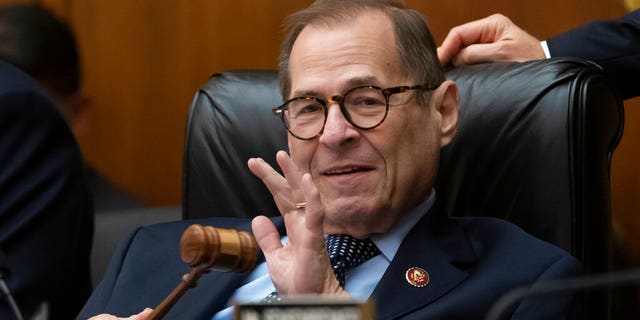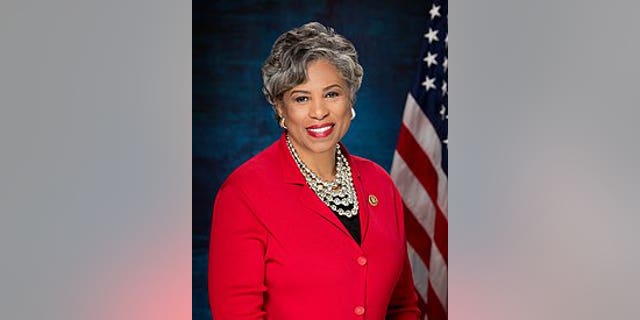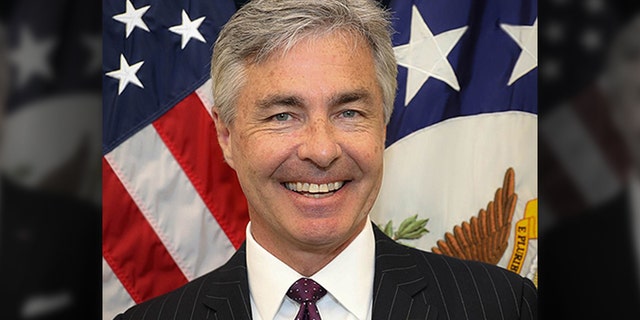Back when he was New York’s mayor, Mike Bloomberg routinely feuded with the press over his whereabouts.
He doggedly refused to release his weekend schedule, even if he was traveling out of town, favoring his own privacy over the public’s right to know.
Now, as of Sunday, he’s running for president. But one organization that won’t be covering him aggressively is Bloomberg News.
This is a journalistic giant, churning out 5,000 stories a day, some of them market-moving. Bloomberg News has 2,700 journalists spread across 150 bureaus around the globe, along with a television network, a magazine and those extremely lucrative Wall Street terminals.
But after the 77-year-old billionaire jumped into the Democratic race, the news service’s editor-in-chief, John Micklethwait, issued an edict to his staff.
“We will continue our tradition of not investigating Mike (and his family and foundation),” the memo said. And that prohibition would extend to his rivals in the party because “We cannot treat Mike’s Democratic competitors differently.”
So everyone from Biden to Bernie to Booker to Bloomberg is off-limits for investigation.
But its team “will continue to investigate the Trump administration as the government of the day.”
If you wanted to come up with a policy that would seem to favor Bloomberg and his re-adopted party—he ran for mayor as a Republican—while disadvantaging the man whose job he wants, it would be hard to beat this.
I get that it’s a messy situation, but this is a compromise that satisfies precisely no one.
If Bloomberg’s family (and presumably Joe Biden’s son) are off-limits, are Donald Trump’s kids still fair game?
Bloomberg News has always been squeamish about covering its founder. A similarly restrictive policy was in place during Mayor Bloomberg’s 12-year tenure. But now he’s running for the highest office in the land. What issue doesn’t in some way touch on the presidential campaign?
When the ex-mayor flirted with a 2016 run, Kathy Kiely resigned as Bloomberg News’ political editor because of the same policy.
“I think that when you're running a political operation as we were that you should follow every story aggressively, and I felt that we weren't able to follow this story aggressively,” Kiely told me on “Media Buzz.” “And that I thought compromised us as an organization. I certainly --- I certainly felt it compromised me as an editor.”
Megan Murphy, Bloomberg’s former Washington bureau chief, tweeted that the policy was “ridiculous” and “not journalism.” She said she threatened to resign over a similar memo during that 2016 exploration.
The Micklethwait memo also addresses Bloomberg Opinion. The two top editors, Tim O’Brien (an MSNBC contributor) and David Shipley, are taking leaves to join the Bloomberg campaign. Meanwhile, the rest of the editorial board is being suspended and the section will refuse to publish any outside op-ed on the 2020 campaign. Closed for business.
The company says it will assign a reporter to follow the Bloomberg campaign, writing about speeches, policies and polls. The initial story on the launch said the candidate is “offering his own mix of moderate policy stances and experience in business, government and philanthropy as the way to beat President Donald Trump.”
The editor-in-chief says he doesn’t want to lay down too many rules so they can adapt to changing circumstances, and will reassess the situation if Bloomberg wins the nomination.
This is a dilemma not seen since William Randolph Hearst blatantly used his newspapers to promote his 1904 presidential bid. But Bloomberg’s company dwarfs that early 20th-century enterprise.
Other media companies examine their owners, or corporate parents, with little fuss. The Washington Post reports on Jeff Bezos and Amazon. ABC sometimes has to cover Disney. CNN had to cover Time Warner and now AT&T. It’s a fact of life in the era of corporate media.
Mike Bloomberg, to his everlasting credit, took a $10-million payout from a Wall Street firm to launch an incredibly successful business news operation. Many talented journalists have worked there over the years. It’s a shame that this short-sighted move could taint its reputation for journalistic independence.
He doggedly refused to release his weekend schedule, even if he was traveling out of town, favoring his own privacy over the public’s right to know.
Now, as of Sunday, he’s running for president. But one organization that won’t be covering him aggressively is Bloomberg News.
This is a journalistic giant, churning out 5,000 stories a day, some of them market-moving. Bloomberg News has 2,700 journalists spread across 150 bureaus around the globe, along with a television network, a magazine and those extremely lucrative Wall Street terminals.
But after the 77-year-old billionaire jumped into the Democratic race, the news service’s editor-in-chief, John Micklethwait, issued an edict to his staff.
“We will continue our tradition of not investigating Mike (and his family and foundation),” the memo said. And that prohibition would extend to his rivals in the party because “We cannot treat Mike’s Democratic competitors differently.”
So everyone from Biden to Bernie to Booker to Bloomberg is off-limits for investigation.
But its team “will continue to investigate the Trump administration as the government of the day.”
If you wanted to come up with a policy that would seem to favor Bloomberg and his re-adopted party—he ran for mayor as a Republican—while disadvantaging the man whose job he wants, it would be hard to beat this.
I get that it’s a messy situation, but this is a compromise that satisfies precisely no one.
If Bloomberg’s family (and presumably Joe Biden’s son) are off-limits, are Donald Trump’s kids still fair game?
Bloomberg News has always been squeamish about covering its founder. A similarly restrictive policy was in place during Mayor Bloomberg’s 12-year tenure. But now he’s running for the highest office in the land. What issue doesn’t in some way touch on the presidential campaign?
When the ex-mayor flirted with a 2016 run, Kathy Kiely resigned as Bloomberg News’ political editor because of the same policy.
“I think that when you're running a political operation as we were that you should follow every story aggressively, and I felt that we weren't able to follow this story aggressively,” Kiely told me on “Media Buzz.” “And that I thought compromised us as an organization. I certainly --- I certainly felt it compromised me as an editor.”
Megan Murphy, Bloomberg’s former Washington bureau chief, tweeted that the policy was “ridiculous” and “not journalism.” She said she threatened to resign over a similar memo during that 2016 exploration.
The Micklethwait memo also addresses Bloomberg Opinion. The two top editors, Tim O’Brien (an MSNBC contributor) and David Shipley, are taking leaves to join the Bloomberg campaign. Meanwhile, the rest of the editorial board is being suspended and the section will refuse to publish any outside op-ed on the 2020 campaign. Closed for business.
The company says it will assign a reporter to follow the Bloomberg campaign, writing about speeches, policies and polls. The initial story on the launch said the candidate is “offering his own mix of moderate policy stances and experience in business, government and philanthropy as the way to beat President Donald Trump.”
The editor-in-chief says he doesn’t want to lay down too many rules so they can adapt to changing circumstances, and will reassess the situation if Bloomberg wins the nomination.
This is a dilemma not seen since William Randolph Hearst blatantly used his newspapers to promote his 1904 presidential bid. But Bloomberg’s company dwarfs that early 20th-century enterprise.
Other media companies examine their owners, or corporate parents, with little fuss. The Washington Post reports on Jeff Bezos and Amazon. ABC sometimes has to cover Disney. CNN had to cover Time Warner and now AT&T. It’s a fact of life in the era of corporate media.
Mike Bloomberg, to his everlasting credit, took a $10-million payout from a Wall Street firm to launch an incredibly successful business news operation. Many talented journalists have worked there over the years. It’s a shame that this short-sighted move could taint its reputation for journalistic independence.
















